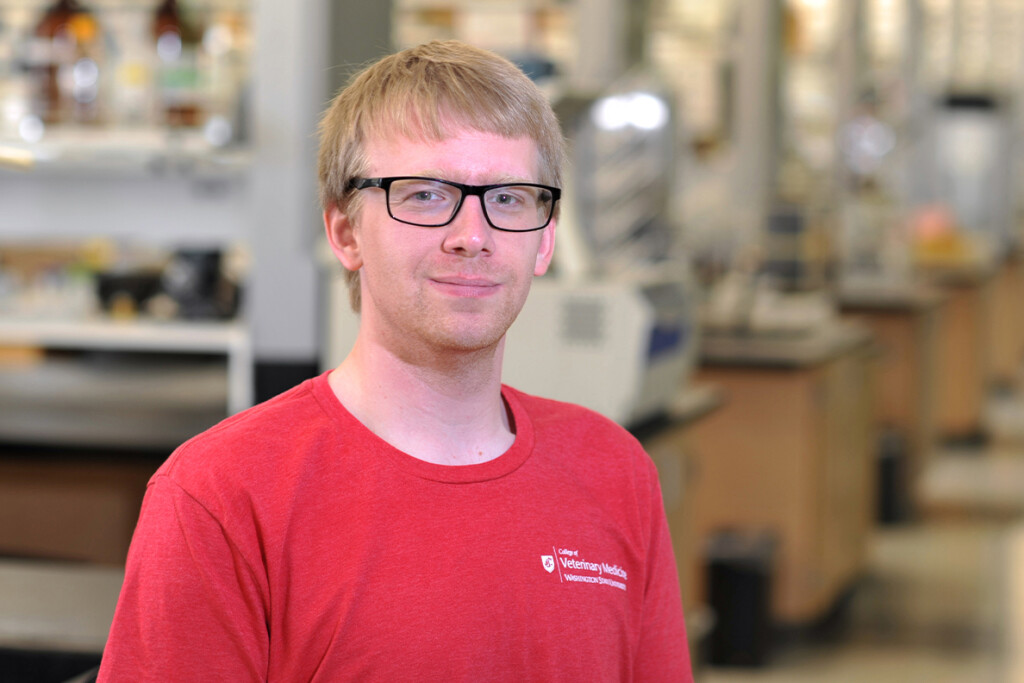Undergraduate research gave me an advantage in graduate school
Undergraduate research gave me an advantage in graduate school

By Abby Denault ’25
Cody Lauritsen ’19 speaks from experience when he says that undergraduate research is important for students interested in pursuing an advanced degree.
As a Wartburg student, he double majored in biology and public health and was the first in his family to earn a bachelor’s degree. Lauritsen had the opportunity to present his undergraduate research on vaccination rates in Bremer County and the epidemiology of pathogens associated with ticks during the college’s RICE Day in 2018 and 2019.
Now a doctoral student at Washington State University, Lauritsen studies immunology and infectious diseases. He recently was awarded the prestigious National Bio and Agro-Defense Facility Scientist in Training Program fellowship from the U.S. Department of Agriculture’s Animal and Plant Health Inspection Service. The fellowship, which has only been awarded to 25 people in the last four years, will prepare him to join the Foreign Animal Disease Diagnostic Laboratory (FADDL) at the new National Bio and Agro-Defense Facility (NBAF) in Manhattan, Kan.
Lauritsen explained it this way: “When a veterinarian in a small town gets an animal in, and they don’t really know what is wrong, they could take a sample and send it to us. Then we would do the diagnostics.” But these won’t be just any run-of-the-mill diseases; the facility is expected to work with some of the most dangerous infections currently plaguing our animal populations.
Though the topics and labs vary greatly, Lauritsen said his experiences at Wartburg prepared him well for this moment.
“It helps to understand that structure and rigor that comes with research. A lot of times when you are doing research, especially when in STEM fields, you are at its mercy,” Lauritsen said. “Getting a feel for a laboratory and how one runs and keeping good notes is really important. Getting that experience at Wartburg definitely helped me better understand working in lab.”
Lauritsen also appreciated the mentoring from professors he received and said those professor-student relationships have evolved as he has continued in the field.
“Going to Wartburg and being able to have that one-on-one relationship with professors has helped a lot. I am not dissing on any big universities, but it is really hard to have that connection with the professor or anyone on campus because you are just one out of 40,000 kids. That is one the big advantages that I would say Wartburg gave me for my future,” Lauritsen said.
He still keeps in contact with his Wartburg mentor, Dr. Stephanie Toering Peters, the Dr. Richard L. and Sandra K. Wahl Professor in Biology.
“She helped me get through a lot of things and helped me steer in the right direction,” Lauritsen said.
Lauritsen’s advice for students looking to go to graduate school: “More than anything, even your GPA, they look for research experience. With me, I wasn’t really expecting anything. I was thinking, ‘Oh, I’ll give it a whirl,’ and it happened. I would definitely say, just apply. You never know.”